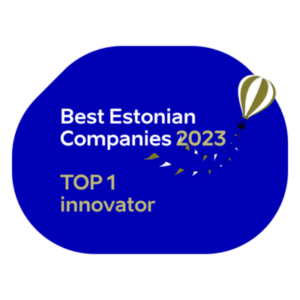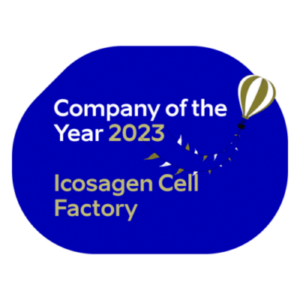Search from website
Search from website
Home CRDMO Services Antibody discovery
Icosagen has implemented a toolbox of diverse antibody discovery technology platforms to yield specific high affinity antibodies for any target class. To extract highly selective binders against small molecules, membrane proteins (using pseudotyped VLPs), and recombinant proteins, we combine in vivo and in vitro methods, from B-cell cloning to fully synthetic phage libraries.
Based on state-of-the-art high-throughput analytical capabilities, these antibodies can then be further optimized, formatted into any desired frameworks and seamlessly produced from milligrams to kilograms.
Our phage display antibody discovery service, which utilizes synthetic libraries customized for various targets, is a powerful high-throughput and cost-effective in vitro platform for the rapid identification and characterization of high-quality antibodies.
Phage display in combination with in vivo-immunization and our in-house B-cell cloning platform HybriFree®, generates diverse sets of highly specific, functional and non-overlapping epitope antibodies.
Our proprietary HybriFree technology is based on B-cell cloning, and is used for efficient discovery of monoclonal antibodies and their immediate production in mammalian cells. HybriFree makes antibody discovery rapid and flexible, and allows cloning antibodies even from recovered patients’ PBMCs and existing hybridomas.
All antibodies discovered through HybriFree platform can readily be produced transiently at mg to gram range or developed into stable high producer CHO cell lines.
REMEMBER: ANTIGEN MATTERS! Even the smallest difference between an antigen and the natural target protein will affect the antibody specificity and biological function.
Icosagen-discovered antibodies can be used for IVD purposes or developed as biopharmaceutical drug candidates.
We clone antibodies from hybridomas, provided by our customers, and produce them at requested scales.
In addition, we deliver the cDNA sequence encoding the antibody variable heavy (VH) and light (VL) domains.
We have implemented different immunization technology platforms, which are specifically designed to tackle diverse antigen classes. While immunizations with soluble recombinant proteins are often highly effective, more complex targets, such as multi-pass transmembrane proteins, present a serious challenge, as they are difficult to purify in native 3D-structure.
To overcome this, we engineered a proprietary display & discovery platform, that combines multi-pass transmembrane protein pseudotyped VLPs with nucleic acid immunization.
With this, and over 15 years of experience in DNA immunizations,we simply know how to create specific and functional affinity ligands with chickens and rabbits.
Multi-pass transmembrane proteins address a serious challenge as they are difficult to purify in their native 3D-structure. Icosagen has engineered a platform to specifically tackle diverse membrane-associated antigen classes, such as GPCRs. To overcome purification complexities with multi-pass transmembrane proteins, we utilize virus-like particles (VLPs) to effectively purify complex proteins in their native 3D-structure. Subsequently, these VLPs serve as a valuable tool for immunization in membrane protein antibody discovery projects.
Read more about immunization and membrane protein expression.
Antibodies, aslo known as immunoglobulins (Ig), are large Y shaped molecules divided into five primary isotypes: IgG, IgM, IgA, IgD and IgE. They are produced by the immune system in response to the presence of foreign substances, know as antigens. Antibodies circulate in the blood and provide a specific defence mechanism against infections and diseases. Some of the key functions of antibodies are neutralization, opsonization, complement activation, antibody-dependent cellular cytotoxicity (ADCC) by recognizing foreing substances, via neutralization, phagocytosis.
Antibodies consist of two heavy and two light chains. The heavy chain defines the isotype of an antibody (IgG, IgM, IgA, IgD and IgE), whereas the light chains are classified as kappa or lambda. Variable regions of both heavy and light chain are responsible for the crucial step in the immune response – binding to the target antigen.
Polyclonal antibodies differ from monoclonal antibodies, because they are produced by many different B-lymphocytes, and therefore identify a different epitope on an antigen. On the contrary, monoclonal antibodies are derived from single B-cell clone and identify a single epitope.
Antibodies serve as valuable tools in drug discovery, aiding in target identification, validation, characterization and the development of antibody-based therapeutics. Their high specifity, ability to bind diverse targets, long half-life and versatility in enginereing, makes them highly valuable as therapetics.
Our expertise covers discovery, development, and manufacturing of mammalian therapeutic antibodies up to clinical candidate development, including stable CHO cell line development for GMP manufacturing.
A chimeric monoclonal antibody is an engineered antibody that combines the variable domain of an antibody from one host species (e.g. chicken, rabbit, llama, etc.) with the constant domain of an antibody from different species (e.g. human). Although, these structural chimeras were first created to minimize human anti-mouse antibody (HAMA) response, humanized antibodies are distinct from chimeric antibodies as they carry a larger stretch of sequences from human antibodies. And therefore, having a lower immunogenicity, humanized antibodies are used as immunotherapeutic agents.
Our humanization platform allows us to routinely humanize antibody variable regions from the light (VL) and heavy chains (VH) from any species. Read more about humanization service.
We have the versatility to employ individual or combined approaches, utilizing both in vivo and in vitro methods. This spans from B-cell cloning to the creation of fully synthetic phage libraries to yield specific, high affinity antibodies for any target class. Our experienced antibody discovery team will choose the best approach, tailored for specific molecule, whether it is simple IgG or more complex integral membrane protein.
The antibody discovery workflow begins with target identification and validation, followed by the immunization of a host animal with the antigen. For the discovery, to isolate desired antibodies with high affinity and specificity, we use B-cell panning and hyperimmune or synthetic phage libraries for screening. The selected antibodies undergo transient production and are characterized for binding kinetics, specificity, and functionality. Lead engineering and optimization are implemented to enhance properties such as affinity and humanization, to name a few.
A good therapeutic antibody can be determined by studying the affinity, specificity, purity, cross-reactivity and most importantly its intended function. While the first three can be analyzed using a well-equipped machinery park, cross-reactivity and functional analysis require in vivo assays. Final confirmations of the antibody emerge at the end of clinical trials.
We offer end-to-end services for bi- and multispecific antibodies, handling everything from discovery and engineering to production. Our tailored analytics and purification processes ensure each molecule meets set requirements. Alternatively, to design and production of bispecific antibodies, we can produce and purify antibodies directly from electronic sequences provided by our customers.
Read more about bispecific antibody production and bispecific antibody engineering.
Our distinctiveness is the CRDMO concept, that lies in serving as a one-stop-shop for biopharmaceutical, biotechnology and diagnostic sectors. This encompasses our full expertise, spanning the entire spectrum from discovery and development to manufacturing of mammalian therapeutic antibodies.
Several antibodies, discovered and manufactured for our customers, are used in clinical diagnostics or in clinical trials.
In 2024, Icosagen’s on-site GMP facility will be completed, opening up additional capabilities for producing therapeutic antibodies and proteins for clinical trials. This is where the scientist together with the cutting-edge technology converge, to create science that reaches people.



